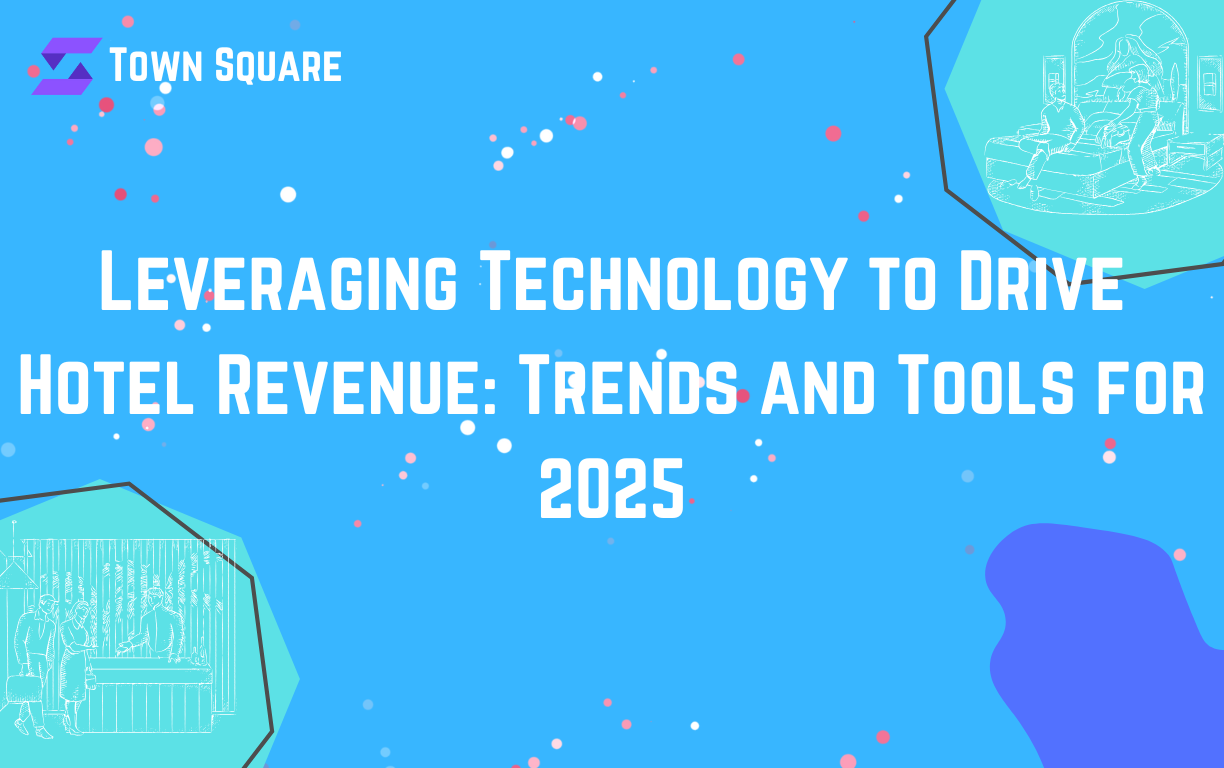
Scanotel
January 11, 2025 • 6 min read
In today's digital age, technology plays a pivotal role in shaping the hospitality industry. For hoteliers, leveraging the right technological tools and trends can significantly enhance operational efficiency, improve guest experiences, and ultimately drive revenue. This post explores the latest technological advancements poised to transform the hotel industry in 2025.
1. Artificial Intelligence and Machine Learning
Artificial Intelligence (AI) and Machine Learning (ML) are revolutionizing how hotels operate. From personalized marketing campaigns to predictive maintenance, AI-driven solutions enable hoteliers to make data-informed decisions. Chatbots and virtual assistants enhance guest interactions by providing instant responses to inquiries and facilitating bookings, thereby improving guest satisfaction and increasing conversion rates.
Takeaway: Integrating AI and ML can streamline operations, personalize guest experiences, and optimize revenue management strategies.
2. Internet of Things (IoT) for Smart Rooms
The Internet of Things (IoT) is enabling the creation of smart rooms that offer enhanced comfort and convenience. Connected devices such as smart thermostats, lighting systems, and voice-activated controls allow guests to customize their environment seamlessly. Additionally, IoT can help hotels monitor energy usage and optimize resource allocation, reducing costs and boosting profitability.
Takeaway: Implementing IoT technologies in guest rooms enhances the guest experience while promoting energy efficiency and cost savings.
3. Advanced Revenue Management Systems
Modern Revenue Management Systems (RMS) utilize sophisticated algorithms to analyze market trends, competitor pricing, and historical data. These systems provide real-time pricing recommendations, helping hotels maximize room rates and occupancy levels. Advanced RMS tools also offer scenario planning features, enabling hoteliers to anticipate and respond to market fluctuations proactively.
Takeaway: Advanced RMS tools empower hotels to optimize pricing strategies, increasing both occupancy and revenue.
4. Contactless Technologies
The demand for contactless experiences has surged, accelerated by global health concerns. Contactless check-in and check-out processes, mobile key access, and digital payment solutions enhance guest safety and convenience. These technologies not only improve the guest experience but also streamline operations, reducing wait times and operational costs.
Takeaway: Embracing contactless technologies meets guest expectations for safety and convenience, driving higher satisfaction and repeat bookings.
5. Data Analytics for Enhanced Decision-Making
Data analytics tools provide hoteliers with actionable insights into guest behavior, preferences, and spending patterns. By analyzing this data, hotels can tailor their marketing strategies, optimize service offerings, and identify new revenue opportunities. Predictive analytics can also forecast demand trends, enabling proactive adjustments to inventory and pricing strategies.
Takeaway: Leveraging data analytics enables informed decision-making, enhancing marketing effectiveness and uncovering new revenue streams.
Conclusion
Technology is a powerful catalyst for revenue growth in the hotel industry. By embracing AI and ML, IoT, advanced revenue management systems, contactless technologies, and data analytics, hoteliers can enhance operational efficiency, personalize guest experiences, and optimize revenue strategies. Staying abreast of these technological trends and integrating the right tools is essential for hotels aiming to thrive in the competitive landscape of 2025 and beyond.
Summary: Embracing cutting-edge technologies such as AI, IoT, advanced RMS, contactless solutions, and data analytics can significantly boost hotel revenue. These tools not only enhance operational efficiency and guest satisfaction but also provide hoteliers with the insights needed to make strategic, revenue-focused decisions.
